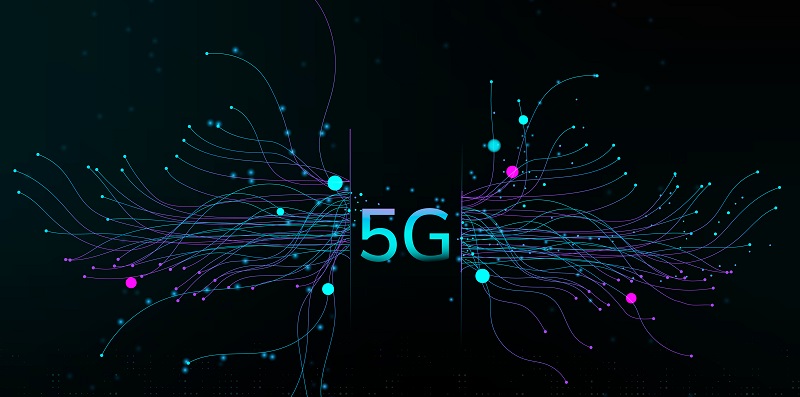In the world of telecommunications, the convergence of Artificial Intelligence (AI) and 5G networks has the potential to revolutionize connectivity. This article explores the profound impact of AI on 5G networks, promising faster speeds, lower latency, improved reliability, enhanced security, and numerous applications ranging from network optimization to smart cities. However, this integration also raises challenges related to infrastructure investments, data privacy, and security.
Faster Speeds, Lower Latency, and Improved Reliability
The integration of AI and 5G networks has paved the way for exceptional performance enhancements. AI algorithms can seamlessly analyze voluminous amounts of data in real-time, allowing network operators to identify and address issues before they can impact user experience. This capability ensures that networks optimize their speed, minimize latency, and enhance reliability.
Real-time Analysis of Vast Data for Issue Identification and Resolution
Harnessing the power of AI algorithms enables network operators to proactively solve network-related challenges. By analyzing data on user behavior and network usage patterns, AI algorithms can dynamically allocate resources to handle the ever-increasing demand for data-intensive applications. This real-time analysis guarantees efficient network performance, ensuring a smooth user experience.
Dynamic Resource Allocation Based on User Behavior and Network Usage Patterns
With AI-driven intelligence, networks can dynamically allocate resources based on changing user demands and network conditions. By predicting usage patterns, AI algorithms optimize resource allocation, ensuring that the network can handle peak demands without compromise. This ability to adapt resources seamlessly ensures a consistent and reliable user experience.
Real-time Analysis of Network Traffic for Threat Detection and Mitigation
The integration of AI in 5G networks bolsters security measures. AI-powered security systems can analyze network traffic in real-time, detecting and mitigating potential threats before they can cause any harm. By continuously monitoring network activity, these algorithms can identify and respond to anomalies swiftly, thereby fortifying network security.
AI-Powered Language Translation
Leveraging the high-speed and low-latency capabilities of 5G networks, AI-driven virtual assistants can provide real-time language translation services. The combination of AI and 5G facilitates seamless communication between individuals speaking different languages, enhancing global connectivity and breaking down language barriers.
AI-powered Autonomous Vehicles
The convergence of AI and 5G networks has immense implications for autonomous vehicles. With the low-latency and high-reliability offered by 5G networks, AI-powered autonomous vehicles can experience improved safety and efficiency. Real-time data analysis, facilitated by AI, enables vehicles to make informed decisions, reducing the risks associated with human error.
Real-time Data Collection and Analysis for Optimizing Urban Aspects
The integration of AI and 5G networks opens up transformative possibilities for smart cities. With AI-powered sensors and devices connected to 5G networks, cities can collect and analyze real-time data, optimizing various aspects of urban life. Traffic management, energy consumption, waste management, and resource allocation can be efficiently optimized, leading to more sustainable and livable cities.
Computing Power and Storage Requirements for Edge Deployment of AI Algorithms
The deployment of AI algorithms at the edge of the network necessitates substantial computing power and storage capabilities. To unlock the full potential of AI and 5G networks, significant investments in infrastructure are required. Overcoming these challenges will lead to more efficient and decentralized network operations.
Privacy and Security Concerns for Data Transmitted over 5G Networks
While the fusion of AI and 5G networks brings unprecedented connectivity possibilities, ensuring the privacy and security of the data transmitted is of utmost importance. Achieving this requires robust security measures and policies to address potential vulnerabilities and protect sensitive user information.
The integration of AI algorithms with 5G networks promises a revolution in connectivity, enabling faster speeds, lower latency, improved reliability, enhanced security, and a wide range of applications. However, realizing this potential requires substantial investments in infrastructure, including computing power and storage capabilities at the network’s edge. Furthermore, privacy and security concerns must be addressed to maintain user confidence in the utilization of AI and 5G technologies. As we navigate this intersection of AI and 5G networks, it is crucial to seize the opportunities they present while safeguarding the ethical, privacy, and security aspects, ultimately creating a world of seamless connectivity driven by intelligence.

